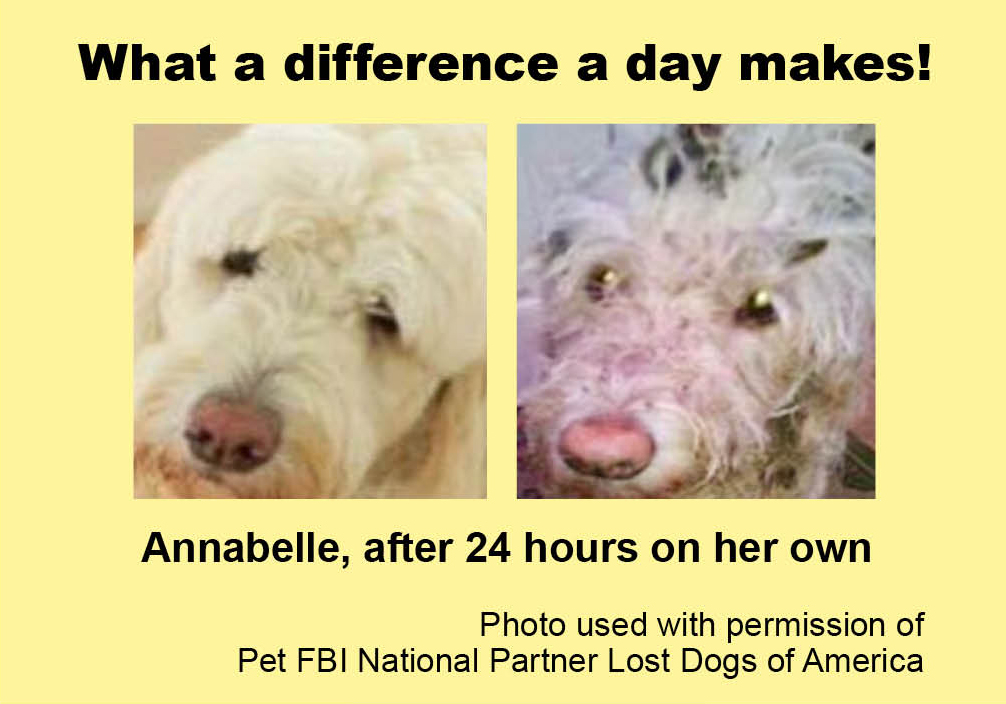Lost Pets and the Pitfalls of Assumptions

Encountering a lost pet can evoke a range of emotions from concern to indignation. Sometimes we jump to conclusions – the pet is abandoned, neglected, unwanted. These assumptions, though well-intentioned, can lead to detrimental consequences for a lost pet.
Lost pets may not fit the image we associate with well-cared-for animals. They might appear dirty, disheveled, or underweight. Yet, this doesn't necessarily indicate neglect or mistreatment. A pet’s appearance can change quickly when they are on their own in the elements, even for a brief time. The pet may have been missing for a while or they may have a medical condition causing them to appear underweight or neglected. 
When a lost pet is assumed to be abandoned or neglected, efforts may focus on finding them a new home rather than seeking their rightful owners. This delay can prolong the pet's distress and deny a family the chance to be reunited with their missing family member.
So, what can we do to avoid falling into the trap of assumptions when encountering a lost pet?
First, remember that not all stray pets are homeless. The pet you found may have a family desperately searching for it.
Secondly, utilize available resources such as lost pet databases, social media platforms, and local animal shelters to locate the pet’s family. Distribute flyers in the area where the pet was found. Have the pet scanned for a microchip.
Lastly, refrain from passing judgment or making assumptions about the pet's family or circumstances. You never know what circumstances led to the pet being on their own.
By challenging our preconceptions and approaching the situation with empathy and open-mindedness, we can help more lost pets find their way home.
Click here for more tips on how to reunite a lost pet with its family. If you’ve found a pet, be sure to enter a report in the Pet FBI database.